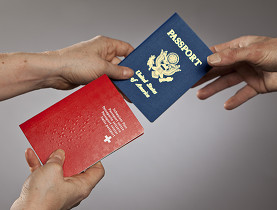According to Foreign Affairs, Dutch officials really don’t like it when someone calls their country a tax haven.
In 2009, the Obama administration did just that, naming the Netherlands as one of a number of countries where scores of major American firms had established subsidiaries in order to avoid paying U.S. taxes. In a press briefing, the White House also noted that, taken together with Bermuda and Ireland, the Netherlands claimed nearly a third of all foreign profits reported in 2003 by U.S. corporations.
These statements provoked outrage in the Netherlands and a protest from the Dutch ambassador in Washington. “We’re not happy,” said Jan Kees de Jager, the Netherlands’ finance secretary.
“I Expect There’ll Be A Clarification and We’ll Not End Up On Lists Like This In Future,
Between Bermuda And Ireland.”
After all, the Dutch response seemed to suggest, everyone knows that those places and others, such as the Cayman Islands and Switzerland are tax havens, and to lump the Netherlands in with them was apparently a profound insult.
 Shortly afterward, de Jager claimed that the Americans had agreed to stop describing the Netherlands in those terms. Doing so might have been justified by a desire to placate an aggrieved U.S. ally. But the truth is that the Netherlands absolutely belonged on a list of major tax havens—and still does, today.
Shortly afterward, de Jager claimed that the Americans had agreed to stop describing the Netherlands in those terms. Doing so might have been justified by a desire to placate an aggrieved U.S. ally. But the truth is that the Netherlands absolutely belonged on a list of major tax havens—and still does, today.
In 2017, foreign direct investment in the Netherlands totaled $5.2 trillion. But the vast majority of that money wasn’t invested at all: only $836 billion actually entered the Dutch economy.
The Other $4.3 Trillion Went Into Shell Companies or Subsidiaries Set Up To Avoid Paying Taxes Elsewhere.
As such numbers should indicate, this isn’t the work of a few shady players trying to hide their illicit gains: some of the biggest players in the global economy are in on the game.
Google and IBM are among the many U.S. companies that have established operations in the Netherlands in order to reduce their tax bills back home. Most people consider Fiat Chrysler an Italian-American multinational; technically, however, it is a Dutch company, having decided for tax purposes to establish its official headquarters in Amsterdam in 2014.

In 2016, the Netherlands, with a population of barely 17 million, accounted for 16 percent of all foreign profits claimed by U.S. companies. Needless to say, that is not because American firms just happen to sell an extraordinary amount of goods and services to the Dutch.
Rather, it’s because the Netherlands lets those companies park the money they make elsewhere in Dutch subsidiaries or shell companies, or move those profits through “letterbox” entities in the Netherlands, from which it can be sent on to other tax havens.
For Example, In 2017, Google Took $22.7 Billion In Profits It Made Outside The United States
And Transferred It Via The Netherlands To Bermuda,
Where The Money Avoided Being Taxed Altogether.
The Dutch government has always contended that things weren’t meant to work out this way. All those shell companies and all that money, officials have claimed, are just the accidental byproducts of innovative tax politics that intend merely to give Dutch companies a leg up in a hypercompetitive global economy.
Despite these protestations, the truth is that for decades the Netherlands has deliberately established itself as a tax haven at the direct expense of its European neighbors, the United States, and developing countries. And until recently, the Dutch have gotten away with it. But in the last few years, more and more journalists and researchers have started to sound the alarm.
Want to Use The Netherlands in Your Tax Planning?
Contact the Tax Lawyers of
Marini & Associates, P.A.

For a FREE Tax Consultation contact us at:
Toll Free at 888-8TaxAid ( 888 882-9243![]() )
)
















